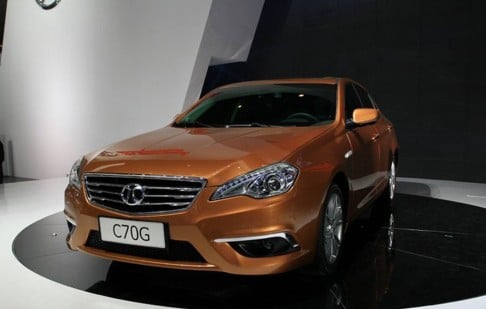BAIC off on bumpy ride in global push
Despite stiff challenges from renowned foreign brands, mainland carmaker is determined to make its presence felt in the global market through after-sales service

Travelling a bumpy road in bringing a young brand to the world stage, carmaker BAIC is seeking to strengthen after-sales service and expand sales channels through partnerships in its go-global push.
"Compared with competitors such as Japanese and South Korean carmakers that have more than 30 years' experience in the global market, China's brands are like primary school pupils," said Dong Haiyang, the president and chief executive of BAIC International Corp, set up by China's fifth-largest carmaker in June last year with the aim of boosting its presence overseas.
Dong said BAIC was still "groping in the dark" and faced fierce competition from dominant players in the global market while its marque was little-known.
BAIC bought technology from General Motors' Saab unit in 2009 in a deal that allowed it to launch Saab-based vehicles under the Senova brand.
"The quality and technology of our [Saab-based] vehicles are good," Dong said. "However, we do not have any brand advantage, so we have to strengthen our after-sales service to let customers remember us."
Dong said the company was targeting markets in Brazil, Russia, Indonesia, Mexico and South Africa, and was upbeat on growth potential in North Africa, the Middle East, Southeast Asia and South America's Andean nations.
But while it took just 24 hours to send a car part to any location on the mainland, two weeks were needed to send one to Chile, he said, which was why BAIC was seeking to form partnerships with local companies to provide after-sales service.
"Providing good after-sales service will be an expensive investment for us. We need facilities, skilful workers and standardised procedures," he said. "But it will help us make a breakthrough in the international market."
The BAIC marque made its mainland debut in 2011 and sales last year hit 202,200, up 201.8 per cent on the year. However, that was just a fraction of its total sales. The Chinese partner of German carmaker Daimler and Korea's Hyundai Motor sold 2.16 million vehicles last year, up 18.8 per cent.
In the first quarter of this year, it sold 3,426 cars for 425 million yuan (HK$530 million). It aims to achieve sales of 400,000 vehicles a year by 2020, with annual revenue of 50 billion yuan.

The acquisition of established marques could be an effective way to expand a global presence, Dong said. But while BAIC has said it would consider buying a brand in Europe or the US, that could be difficult.
"In the motor world, the brand is the company's key asset," he said. "If the brand is well-established, who would want to share it with us?"
Like many other mainland brands, the lack of recognition had limited sales and expansion overseas. Besides improving after-sales service, Dong said working with local partners with their own networks was also important in expanding sales and distribution channels.
"We aim to team up with national distributors to expand our sales channels in every country," he said, adding that such distributors had a good understanding of the tastes and demands of local customers.
Regulatory compliance is another obstacle BAIC faces when it introduces its vehicles to other countries with different tariff regimes, environmental standards and localisation requirements.
"The ability to redevelop existing products is therefore important," Dong said. "Car designs and features have to be varied to match different requirements in different countries."
In the long run, he said, it would be ideal to build five to seven regional operating centres that could manage localised research and development centres, production plants and distribution centres by 2020.
"BAIC's aim is to become a multinational carmaker from a national company," he said. "How much time we need and how far we can go will depend on the ability of our team."
The company has a multinational team and Dong said the ability to manage talent was important when dealing with people from different cultures and countries.
"The road to go global is bumpy, but this is what we choose to do to make BAIC a company that can fly with two wings," he said.